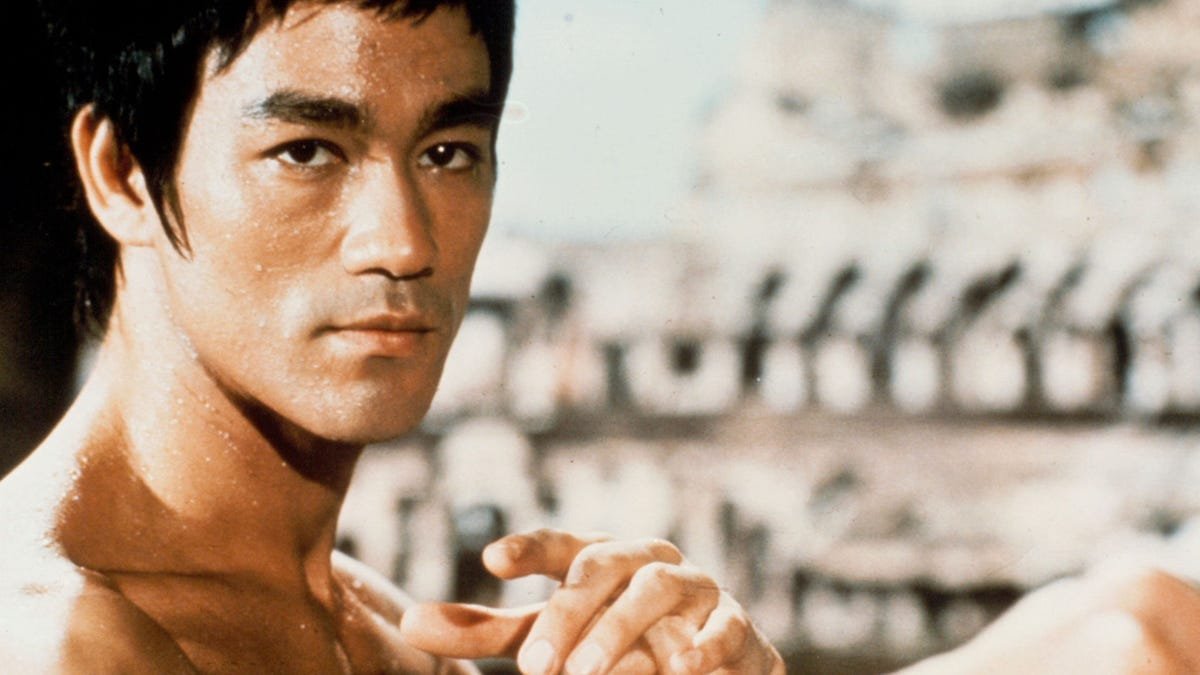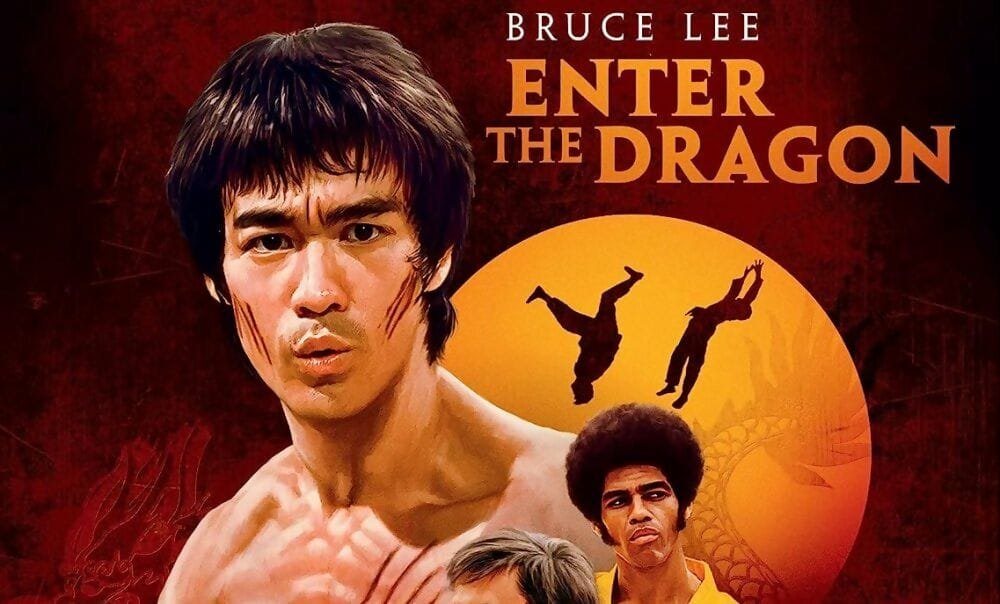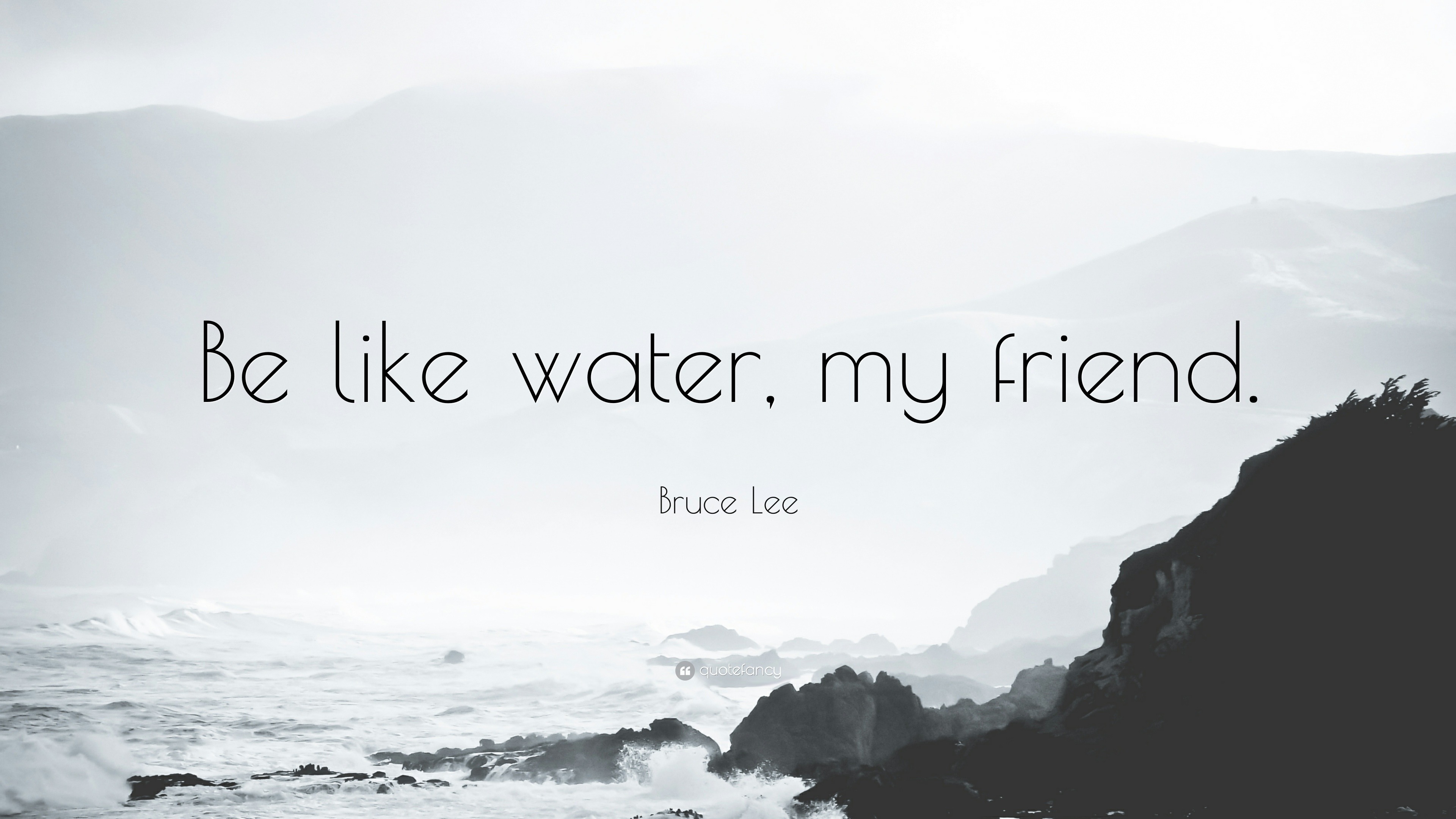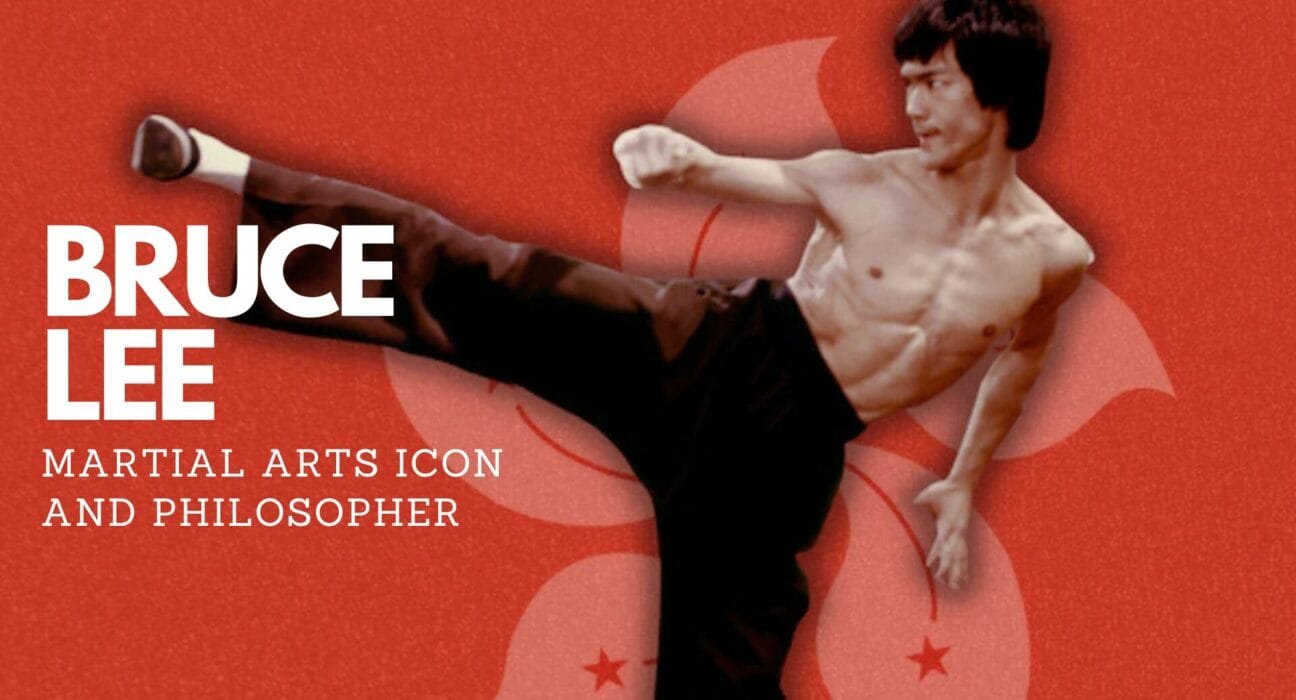Bruce Lee, an enduring symbol of martial arts mastery and philosophical wisdom, left an indelible mark on the world during his short yet impactful life. From revolutionizing martial arts to shaping global cinema and inspiring generations, his legacy continues to resonate. This article explores key aspects of Bruce Lee’s life and influence, offering a comprehensive view of this legendary figure.

Early Life and Education
Bruce Lee’s birth name was Lee Jun-fan, he was born on November 27, 1940. His father, Lee Hoi-chuen, was a Cantonese opera singer born in Hong Kong . His mother Grace Ho was born in Shanghai and of Eurasian ancestry. As a child actor, he appeared in over 20 films before the age of 18.
While Bruce excelled in the arts, his teenage years were marked by a rebellious streak. He often found himself in street fights, leading his parents to enroll him in Wing Chun martial arts training under the legendary Ip Man. This training laid the foundation for his martial arts journey and shaped his disciplined mindset.
At 18, Bruce returned to the United States to pursue higher education and escape escalating gang violence in Hong Kong. Settling in Seattle, he attended Edison Technical School and later enrolled at the University of Washington, where he studied philosophy. His academic pursuits reflected his inquisitive mind and passion for understanding the world beyond physical combat.
The Birth of Jeet Kune Do
Bruce Lee’s groundbreaking martial arts philosophy, Jeet Kune Do (“The Way of the Intercepting Fist”), emerged from his dissatisfaction with traditional martial arts styles. Lee believed that many martial arts schools placed too much emphasis on rigid forms and rituals, often at the expense of practicality and adaptability in real-life combat situations.
Foundations and Philosophy
Jeet Kune Do was not just a fighting technique but a philosophy that emphasized fluidity, efficiency, and simplicity. Influenced by his training in Wing Chun and his exposure to Western boxing and fencing, Lee sought to create a system that prioritized directness and effectiveness. He famously stated, “Absorb what is useful, discard what is not, add what is uniquely your own.”
This ethos encouraged martial artists to transcend tradition, combining techniques from various disciplines to suit their unique physical and mental attributes. Jeet Kune Do was about liberation from strict forms, allowing practitioners to adapt spontaneously to any situation.
Core Principles
Jeet Kune Do emphasizes:- Simplicity: Avoid unnecessary movements; the simplest techniques are often the most effective.- Directness: Attack with intention and precision, minimizing wasted effort. Adaptability: Adjust strategies and techniques based on the opponent and circumstances. Economy of Motion: Maximize power and speed while conserving energy. Lee’s philosophy also incorporated concepts from Taoism and Zen, advocating for mental clarity and focus.

He likened the ideal state of a fighter to water: adaptable, formless, and capable of flowing or crashing depending on the situation. Jeet Kune Do represented a radical departure from traditional martial arts at the time. It was not bound by any one style or system but encouraged evolution and innovation. This philosophy resonated not just in martial arts but also in broader fields like fitness, personal development, and even leadership.
Hollywood and Global Stardom
Bruce Lee’s rise to Hollywood fame was a journey marked by resilience, innovation, and an unyielding determination to break racial barriers. As an Asian actor in a predominantly white industry during the 1960s, Lee faced significant challenges, yet his charisma, talent, and martial arts expertise propelled him to international stardom.
Early Struggles in Hollywood
Lee’s first notable Hollywood role came in 1966 when he was cast as Kato in the TV series The Green Hornet. While the show had a relatively short run, Lee’s portrayal of the masked sidekick captivated audiences. His dynamic martial arts skills, showcased in Kato’s fight scenes, introduced mainstream American viewers to his unparalleled physical abilities. Despite his success in The Green Hornet, Lee struggled to secure leading roles due to pervasive racial stereotypes and biases. He often found himself limited to supporting roles or stereotypical portrayals of Asian characters. These experiences fueled his desire to create opportunities that showcased his authentic self and cultural heritage.
Breakthrough in Hong Kong Cinema
Frustrated with Hollywood, Lee turned his focus to the burgeoning film industry in Hong Kong, where he was welcomed as a star. His first major film, The Big Boss (1971), was an instant hit, breaking box office records in Asia. This was followed by Fist of Fury (1972), which solidified his reputation as a leading man and martial arts icon. Lee’s films resonated with audiences for their raw energy, intense action, and underlying themes of justice and resilience. His characters often embodied the underdog rising against oppression, a narrative that appealed to viewers across cultural and social boundaries.
Global Fame with Enter the Dragon
Bruce Lee’s crowning achievement came with Enter the Dragon (1973), the first major Hollywood-Hong Kong co-production. The film showcased his martial arts brilliance, on-screen charisma, and cultural pride. Lee played a spy infiltrating a martial arts tournament, blending action, intrigue, and philosophical depth. Enter the Dragon became a global phenomenon, grossing over $200 million worldwide and cementing Lee as an international superstar. Tragically, Lee passed away just days before the film’s release, leaving fans to mourn the loss of a legend who was only beginning to realize his full potential.

Influence on Hollywood and Beyond
Bruce Lee shattered the glass ceiling for Asian actors in Hollywood, paving the way for more diverse representation in film. He redefined the action genre, introducing martial arts choreography that was both realistic and cinematic. His work inspired countless filmmakers, including Quentin Tarantino and John Woo, as well as action stars like Jackie Chan and Jet Li. Lee’s charisma and confidence challenged stereotypes, proving that Asian actors could lead films that resonated with global audiences. His fusion of martial arts with storytelling created a blueprint for modern action cinema, ensuring his enduring influence on the industry.
Cinematic Innovations
Lee’s approach to filmmaking was as groundbreaking as his martial arts. He choreographed fight scenes with a cinematic flair that emphasized speed, power, and fluidity, creating sequences that felt both authentic and exhilarating. His incorporation of slow-motion and close-ups revolutionized how martial arts were portrayed on screen. These techniques influenced countless filmmakers and action stars who followed.
Philosophy and Wisdom
Beyond his physical prowess, Bruce Lee was a profound thinker. Drawing from Eastern and Western philosophies, he articulated ideas about self-actualization, resilience, and personal growth. His famous quote, “Be water, my friend,” encapsulates his belief in adaptability and flow. Lee’s writings and interviews reveal a man deeply committed to intellectual and spiritual exploration.

Physical Fitness and Training
Bruce Lee was a pioneer in holistic fitness. His rigorous training routines combined strength, speed, endurance, and flexibility. He emphasized the importance of nutrition, often experimenting with dietary supplements and protein shakes to optimize performance. Lee’s dedication to physical conditioning set a new standard for athletes and martial artists worldwide.
Tragic and Untimely Death
The world lost Bruce Lee, a larger-than-life icon, on July 20, 1973. His death, at the young age of 32, shocked fans and left an enduring mystery that continues to spark speculation and intrigue. Despite his brief time on Earth, Lee’s legacy transcends the tragedy of his untimely passing.
The Events Surrounding His Death
On the day of his death, Bruce Lee was in Hong Kong, preparing for the release of Enter the Dragon. While meeting with producer Raymond Chow and actress Betty Ting Pei to discuss an upcoming film project, Lee complained of a headache. Ting Pei gave him an over-the-counter painkiller, Equagesic, which contained aspirin and a muscle relaxant. After taking the medication, Lee went to rest but never woke up.
Lee was rushed to Queen Elizabeth Hospital, where he was pronounced dead upon arrival. An autopsy revealed that his brain had swollen significantly, a condition known as cerebral edema. The immediate cause of death was attributed to a hypersensitive reaction to the painkiller, leading to the fatal swelling. However, this explanation left many questions unanswered.
Controversies and Speculations
The suddenness of Lee’s death gave rise to numerous theories and controversies. Some speculated that he was poisoned due to professional rivalries or that his death was connected to the so-called “Lee family curse,” which was further fueled by the tragic death of his son, Brandon Lee, under eerily similar circumstances years later. Others pointed to his intense training regimen and experimental use of dietary supplements as possible contributing factors.
These alternative explanations, while unproven, reflect the deep fascination and emotional impact of Lee’s death. Fans and biographers continue to explore the circumstances, searching for closure to a loss that feels as enigmatic as the man himself.
Impact of His Passing
Bruce Lee’s death occurred just weeks before the release of Enter the Dragon, the film that would catapult him to international superstardom. As audiences around the world marveled at his extraordinary performance, they mourned the loss of an icon who had so much more to give. Lee’s passing marked the end of an era, yet it also solidified his status as a legend whose influence would endure far beyond his lifetime.
Conclusion
Bruce Lee was more than a martial artist, actor, or philosopher—he was a visionary who bridged cultures and inspired people to break barriers and embrace their potential. His relentless pursuit of excellence, his dedication to self-expression, and his unwavering belief in adaptability resonate as deeply today as they did during his lifetime. Bruce Lee’s life, though tragically short, serves as a timeless reminder of the power of determination, discipline, and the human spirit. His legacy continues to influence the worlds of martial arts, cinema, and personal development, ensuring that the Dragon’s roar will echo for generations to come.
References
- Wikipedia – Bruce Lee
- “The Last Days of Bruce Lee”. theringer.com. The Ringer. May 29, 2018. Archived from the original on August 2, 2023. Retrieved August 1, 2023.
- “Jun Fan Jeet Kune Do”. Bruce Lee Foundation. Archived from the original on July 23, 2010.
- “BBC Radio 4 – Chinese Characters – Nine things you need to know about Bruce Lee”
For more Such Blogs, Visit Woocur
Thank you 🙂






